Jewish History: Holocaust
Gertrud Kolmar
Gertrud Kolmar was a prolific German-Jewish poet. Kolmar published three collections of poetry during her lifetime, primarily detailing the experiences of women as mothers, childless women, lovers, mourners, travelers, and the persecuted. Kolmar’s work is a vehicle for readers of the early twenty-first century to come to terms with the events of the Shoah.
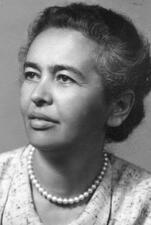
Malka Kolodny
Malka Fisz Kolodny served as one of the first teachers in pre-State Palestine. She taught subjects ranging from basic literacy to chemistry and biology and encouraged, counselled, and supported her students, staying in touch with them for years.
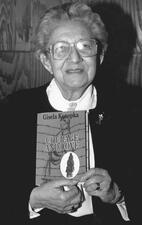
Gisela Peiper Konopka
Berlin-born Gisela Konopka built an international reputation as a group social worker and expert on youth issues. Lauded for her involvement in the rebuilding of social services and education in post-war Germany and beloved by her students at the University of Minnesota, Konopka received more than 42 awards in her lifetime.
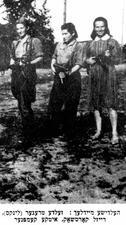
Rozka Korczak-Marla
Rozka Korczak-Marla was active in underground resistance during World War II, serving in the United Partisan Organization to smuggle weapons into the Vilna Ghetto and help Jews escape. After the war she immigrated to Palestine and settled into kibbutz life.
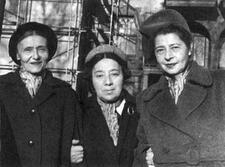
Rokhl Häring Korn
Rokhl Häring Korn is a major figure in modern Yiddish literature. She published eight volumes of poetry and two collections of fiction, much of which focused on themes of homelessness, the upheaval of war, and her experience during the Holocaust.
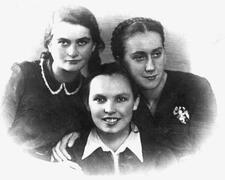
Lonka Korzybrodska
Lonka Korzybrodska was an active member of He-Haluz, a resistance movement during World War II. She participated in missions until her capture and died imprisoned in Auschwitz in 1943.
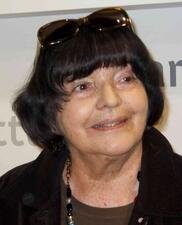
Hanna Krall
Hanna Krall is one of the most important Polish-Jewish writers and reporters. A Holocaust survivor, she portrays in her own extremely concise manner the vicissitudes of other survivors, rescuers, and perpetrators. Krall has been internationally recognized and her works have been translated into fourteen languages.
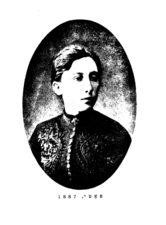
Pati Kremer
Pati Kremer was one of the pioneers of the Jewish workers’ movement in Eastern Europe. Already an active member in the 1890s of the so-called Vilna Group, the precursor to the Bund, she remained closely associated with the Jewish workers’ party until her death in the Vilna Ghetto.
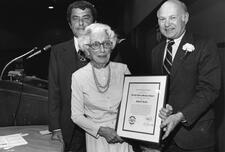
Golda Ginsburg Krolik
Ilona Kronstein
Ilona (Ili) Kronstein was an artist and graphic designer. In the 1930s she focused on her artistic training, working first as a graphic artist, before working in her own studio. Her work, which was not exhibited in her lifetime, was rediscovered in the late 1990s and exhibited in Vienna at The Jewish Museum.
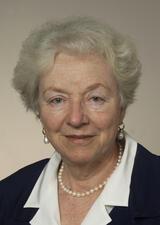
Madeleine May Kunin
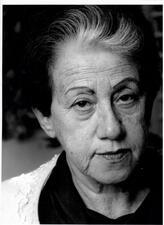
Erika Landau
Erika Landau (1931-2013) was a psychotherapist and educator known for her interest in giftedness and creativity. The fact that she had survived the Holocaust shaped her personal and professional worldview, leading her to make significant contributions to the field of gifted education and creativity. She founded the Young Persons' Institute for the Promotion of Creativity and Excellence, which provided holistic support to gifted children in Israel, and was a model to the world.
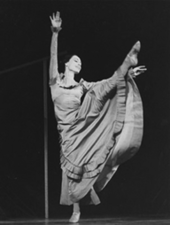
Pearl Lang
Pearl Lang was the first dancer Martha Graham allowed to perform some of Graham’s own roles. She also brought elements of the ecstatic poetry and dance of Jewish traditions to her own praised work.
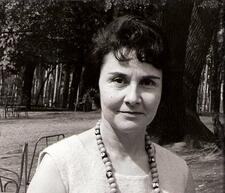
Anna Langfus
After surviving political prison in Poland during the Holocaust, Anna Langfus moved to France and began writing plays and novels that dealt with themes of war, destruction, and loss. In her works, she weaved autobiographical material with fiction, capturing her harrowing experiences in her art.
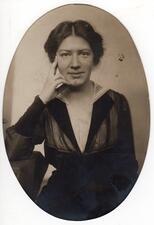
Käthe Leichter
A socialist feminist with a doctorate in political economy, Käthe Leichter was a prominent figure in “Red Vienna” during the interwar years. As a politician, labor organizer, and author, she dedicated her life to benefitting working-class women through social and political reform, and to the struggle against fascism.
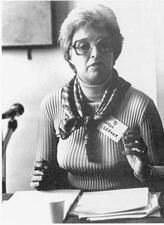
Gerda Lerner
Entering the field of United States history in 1966, Gerda Lerner blazed a new professional path that led to the establishment of the field of women’s history. Lerner’s force and commitment made her impervious to the ridicule with which the male-dominated profession initially responded to the notion of women’s history.
Lia Levi
Nora Levin
Research librarian and educator Nora Levin’s books sparked controversy among historians, but she helped shape popular understanding of modern Jewish history.
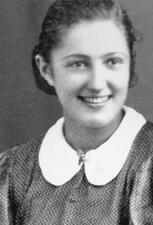
Rivka Kuper Liebeskind
Rivka Liebeskind joined the Akiva Zionist movement as a teenager, becoming a leader in her local chapter and encouraging members to continue their activities after the German occupation began. When the movement transitioned to resistance activities in 1942, she aided young people escaping the Krakow ghetto. Liebeskind survived her deportation to Birkneau and moved to Israel after the war.
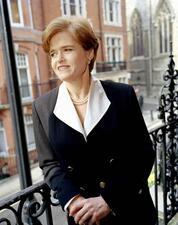
Deborah Lipstadt
Deborah D. Lipstadt is an American Jewish historian of issues surrounding understanding the Holocaust, ranging from reception of news of the extermination of European Jews to denial of the existence of the Holocaust. Lipstadt achieved renown for her defense against libel brought by David Irving, a British Holocaust denier. Her dramatic trial was transformed into a film starring Rachel Weisz.
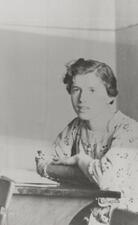
Hildegard Löwy
Born in 1922, Hildegard Löwy was the youngest member of the Baum Gruppe, a mainly Jewish resistance group against the Nazis. She had firm Zionist and pacifist principles and believed communism was the best way for Jews to obtain equal rights. Arrested in April 1942, Löwy tried to escape from prison but was ultimately convicted of Communist treason and executed in a Berlin prison.
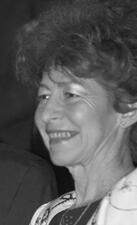
Marceline Loridan-Ivens
Johanna Löwenherz
Johanna Löwenherz traveled widely on behalf of Germany’s socialist women’s movement, raising consciousness and lecturing on the social, economic, and legal equality of women. She became one of the most active representatives of the SDP in the Neuwied region, elected as a delegate to three regional party conferences.
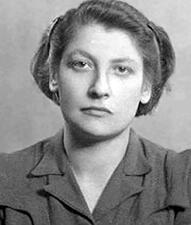
Zivia Lubetkin
Zivia Lubetkin was an important member of the underground resistance movement in Poland during World War II, and later an active member of the United Kibbutz Movement in Palestine.
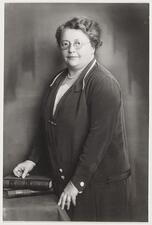
Rosa Manus
Rosa Manus was a Dutch leader in international women’s movements for suffrage and equality, as well as a vocal pacifist before and during World War II. As a Jew, she at times clashed with other feminist leaders.


